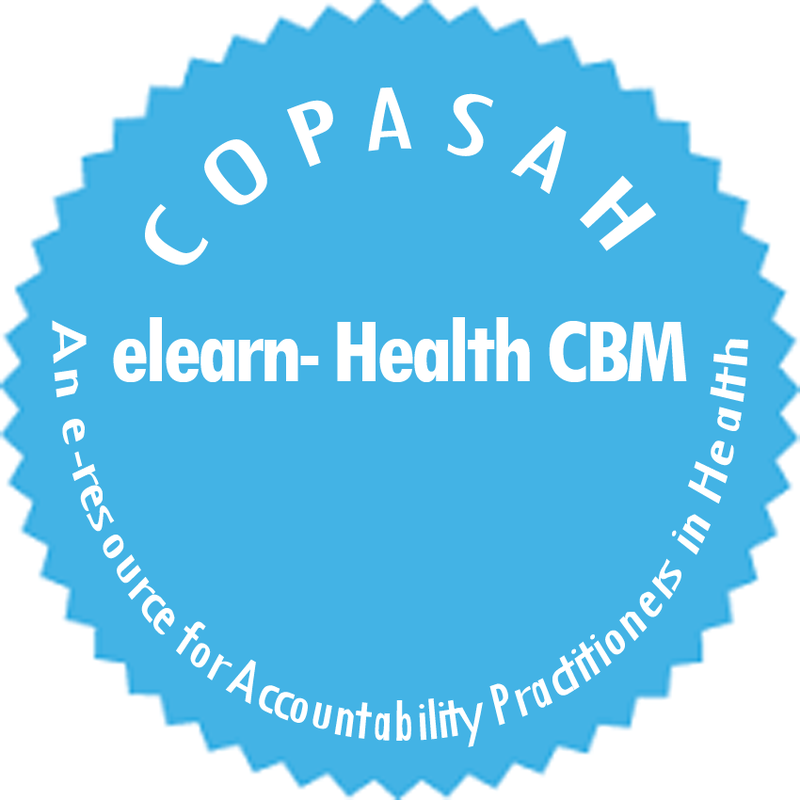
|
|
COPASAH Accounability Lab on Critical Accountability Issue (India)
“People refer to community monitoring with varying terms-social accountability, social audit, community based monitoring and planning. Are these connotations the same or is there anything different around these terms?"
|
Article by COPASAH Secretariat Team, India
|
The seminar which was held on April 22, 2014 at Centre for Health and Social Justice (CHSJ), New Delhi was instrumental in providing a contextual understanding to the entire process and intention behind the terms we generally use for social accountability. For most of the community practitioners from across India the seminar was a very effective platform that helped them to connect theory with practice on social accountability.
The session on Accountability Lab tried to look at how different organisations and people are looking at community Based monitoring (CBM) and how COPASAH would like to see it. Accountability lab connotes the learning space and process aimed at promoting reflections on social accountability. The theme of the first accountability labwas “Critical Accountability Issues for Practitioners of Accountability in Health” to facilitate a clarity among practitioners on the various perspectives on accountability. It comprised of a lecture on the theme of COPASAH Accountability Lab on critical accountability issues (India) by Dr. Abhijit Das, Director, CHSJ. Clarification on the usage of the various key concepts in social accountability was taken up for discussion during this accountability lab.
Voice and Compact:
In order to understand the meaning of the terms pertaining to community based monitoring (CBM) and planning, social accountability and social audit, there should be clarity on the conceptual framework about the role of community. The two essential conditions of social accountability are ‘voice and compact’. Voice is a situation where citizens strongly articulate what they need and what they expect from the public services. Compact is an agreement between the state and subject about their rights and entitlements. Social accountability takes place in the social domain. When the state clearly articulates what they will do in terms of public service delivery, it is easy to measure the public service provision against the intent. Then it becomes a part of social accountability. Social accountability can lead to benefits to all the parameters of the society and not only specific to health through citizenship voice, autonomy and capacity. Not only the individual autonomy, but collective self governance is equally important in accountability process. In COPASAH the vision centres on citizenship paradigm, with the assertion that community centrality is completely non-negotiable in the social accountability process.
Participation:
In order to understand the development of health movement, the notion of citizenship is very important. Participation can vary from passive engagement to self mobilisation and from people being positive beneficiaries to active participants. Political condition of the community in which accountability is implemented is closely allied with active citizenship. It is important to transform subjects to citizens, wherein there is participation in policy formulation and democracy.
Construction of agency-autonomy was highlighted as a vision of COPASAH accountability, in which the agency means to be able to exercise one’s desire, and articulate at a public platform. The group’s interest is to empower the marginalised to challenge the existing power relation with the state and get the decision making in favour of marginalised people and their autonomy. There are imbalances in health knowledge, as well as power relation between the provider and community and this inequality is further increasing because of the issues of marginalisation and poverty. Therefore, any accountability process has to consider this huge imbalance instead of starting from a normative assumption. It was further emphasised that the trust at lowest level has to increase to meet the demand and supply.
The lecture was followed by a discussion on the challenges of social accountability and the ground reality. This was enriched by sharing of field experiences by the participants. The various political factors never remain constant where a community is involved. Empowering the community through an experience or exposure may ensure sustainability in the long run.
The lecture will be soon uploaded on the website.
The session on Accountability Lab tried to look at how different organisations and people are looking at community Based monitoring (CBM) and how COPASAH would like to see it. Accountability lab connotes the learning space and process aimed at promoting reflections on social accountability. The theme of the first accountability labwas “Critical Accountability Issues for Practitioners of Accountability in Health” to facilitate a clarity among practitioners on the various perspectives on accountability. It comprised of a lecture on the theme of COPASAH Accountability Lab on critical accountability issues (India) by Dr. Abhijit Das, Director, CHSJ. Clarification on the usage of the various key concepts in social accountability was taken up for discussion during this accountability lab.
Voice and Compact:
In order to understand the meaning of the terms pertaining to community based monitoring (CBM) and planning, social accountability and social audit, there should be clarity on the conceptual framework about the role of community. The two essential conditions of social accountability are ‘voice and compact’. Voice is a situation where citizens strongly articulate what they need and what they expect from the public services. Compact is an agreement between the state and subject about their rights and entitlements. Social accountability takes place in the social domain. When the state clearly articulates what they will do in terms of public service delivery, it is easy to measure the public service provision against the intent. Then it becomes a part of social accountability. Social accountability can lead to benefits to all the parameters of the society and not only specific to health through citizenship voice, autonomy and capacity. Not only the individual autonomy, but collective self governance is equally important in accountability process. In COPASAH the vision centres on citizenship paradigm, with the assertion that community centrality is completely non-negotiable in the social accountability process.
Participation:
In order to understand the development of health movement, the notion of citizenship is very important. Participation can vary from passive engagement to self mobilisation and from people being positive beneficiaries to active participants. Political condition of the community in which accountability is implemented is closely allied with active citizenship. It is important to transform subjects to citizens, wherein there is participation in policy formulation and democracy.
Construction of agency-autonomy was highlighted as a vision of COPASAH accountability, in which the agency means to be able to exercise one’s desire, and articulate at a public platform. The group’s interest is to empower the marginalised to challenge the existing power relation with the state and get the decision making in favour of marginalised people and their autonomy. There are imbalances in health knowledge, as well as power relation between the provider and community and this inequality is further increasing because of the issues of marginalisation and poverty. Therefore, any accountability process has to consider this huge imbalance instead of starting from a normative assumption. It was further emphasised that the trust at lowest level has to increase to meet the demand and supply.
The lecture was followed by a discussion on the challenges of social accountability and the ground reality. This was enriched by sharing of field experiences by the participants. The various political factors never remain constant where a community is involved. Empowering the community through an experience or exposure may ensure sustainability in the long run.
The lecture will be soon uploaded on the website.
|
|
ABOUT AUTHORS
Article by COPASAH Secretariat Team, India
To know more about events organised by COPASAH, please CLICK HERE.
Article by COPASAH Secretariat Team, India
To know more about events organised by COPASAH, please CLICK HERE.







